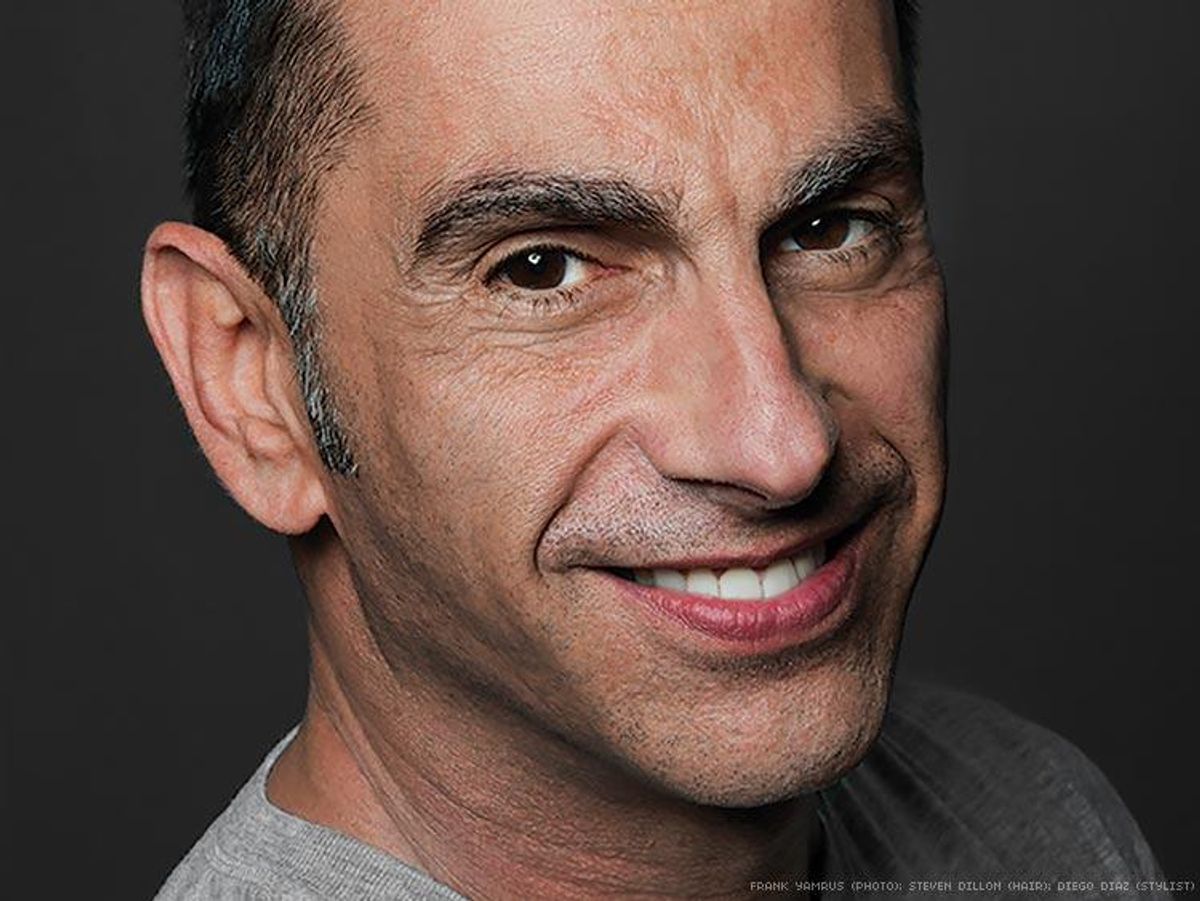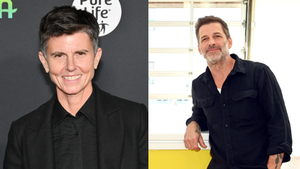Twenty five years ago, Enrique Menendez was opening in the original Broadway company of Miss Saigon. The handsome young, first generation Mexican-American (his father emigrated from Mexico and his mother emigrated from Spain) was killing it on stage. He was also living with HIV. Diagnosed in 1989, while on tour with the first national production of Anything Goes, Menendez was out and raising money for HIV almost immediately (he first sang in a benefit for Broadway Cares/Equity Fights AIDS that same year). This 50-year-old is now an AIDS veteran, having combatted survivor’s guilt, addiction, and over two dozen co-morbidities or side effects from lipodystrophy to peripheral neuropathy. He’s spent two decades as a successful actor, dancer, producer, writer, director, choreographer, talent recruiter, and speaker (there’s more, a lot more), yet his success educating people about living with HIV might be his proudest.
First, tell me about Frank Yamrus’s Long Term Survivor Project. You originally planned to be photographed before and after Sculptra treatment. Was that your idea?
It simply documents survivorship — the physical, psychological and emotional turmoil AIDS has caused over the last 30 years. I was introduced to Frank by a friend on Facebook. Quite frankly, having been a commercial actor I was kind of turned off by the work at first. After some contemplation, I realize, I was struggling at looking at people with lipoatrophy. It triggered the shame I have about having that side effect. So, in Facebook messenger, I offered him the choice of shooting me before or after my Sculptra treatment. My rationalization was, “I would prefer to wait from a self-esteem point of view. You are the artist, so I am open to following your lead.” After that, my therapist came up with the idea that I offer him to photograph me, before and after. I surrendered, threw the ball in his court, [and told him, “Since you are the artist, if that fits within your concept, I am game. From a spiritual place, it might help me deal with the anger I have about the side effects of long-term HIV medication usage. I’ll take your lead.” I sat with Frank last Sunday for the first time and who knows, at this point, I may not even get the treatment. I did have good results in the past and will reassess in about a month or so.
Let’s talk about your short film, AboutFace.
While in rehearsal for Miss Saigon, as part of our research we interviewed many Vietnam vets. I noticed that as a person living with AIDS, I could identify with a lot of the feelings they had experienced. That was when my first draft of [my poem] “Trigger” was written. By 2007, I decided to make it into a short film entitled, AboutFace, which was featured at the 2007 International AIDS Film Festival. It is a metaphysical journey of an AIDS-challenged life juxtaposed with the imagery of war. The film was also shown at The Addiction Institute Art Fair and to an International Hepatitis C Conference. Currently, I am reworking this biopic short.
There’s a line in AboutFace that says you’re battling a war that never seems to end. Still feel that way?
All I can speak for is today. I feel like I have been given the gift of surrender. I wake up each morning and meditate. Quieting my mind and turning over my thoughts guide me to live in the moment. Am I perfect at it? No, and nor would I ever want to be. I have serenity in the fact that I cannot change my HIV/AIDS diagnosis. I’ve accepted this and it has given me the courage to take my medications as prescribed and let go of judgment about the side effects of my medications. My main struggle is with diarrhea. I used to have so much shame around it. Experiencing it at least twice a week. Currently, I access both Eastern and Western medicine to find some balance and live in the solution of a whole life lived.
Tell me about your time in Miss Saigon.
In 1989, I first saw Miss Saigon in London and fell in love with the show. I knew I had to be in that show. Performing in the Viennese company of Les Miserables I did everything in my power to get an audition for the original London company. Since I was not successful at that, I put all of my focus onto the Broadway Company. There were over 6,000 people worldwide who auditioned for the original Broadway Company of Miss Saigon. My mentor, the associate choreographer, chose me to take over as the second dance captain. She used to tell me that I had “eagle eyes.” Well, I put this talent to use and was very proud of how clean my companies of Miss Saigon were. At one point, I took over as dance supervisor of the first National Tour. I made sure that the company was in good shape for our closing city of Vancouver.
You worked with the Proof Positive division of The Morgan Agency, when the agency was scouting real people living with HIV to appear in ads and public service announcements. What was that work like?
Proof Positive began in 1992 and over the next two decades it put over $10 million directly into the hands of people living with HIV through pharmaceutical advertisements, endorsements, appearances, speaking engagements, and traditional placement in acting and modeling jobs. The division was credited in the Wall Street Journal…for changing the face of AIDS by promoting healthy images of people living with the disease instead of just dying from it. It gave hope and inspiration to the hundreds of thousands directly affected while helping those who did not move past the stigma and discrimination that was so prevalent at the time. I read an article about the agency and sent my headshot to the founder, Keith Lewis. The rest is history. I booked eight campaigns. I was then asked to be a talent scout for new models and I would photograph them and submit them to the agency. Ultimately, I flew to Los Angeles and served as the casting director, which I had also done in New York City. I’m really grateful to have served my HIV brothers and sisters.
You are a big supporter of The Actor’s Fund. Tell me why that’s important to you.
Here’s why. When I was in need, I received assistance with rent, medical bills, dental bills, lab bills, utilities, moving costs and security deposit, therapy payments and copayments, substance abuse treatment and rehabilitation, financial sssistance while awaiting approval of Social Security disability. They also helped me with psychotherapy referrals, hospital visits, home visits, counseling. referrals for community organizations (like God’s Love We Deliver). I participated in HIV support groups, utilized the Actors Fund Career Center, participated in the writers group, and was referred to new HIV Protease Inhibitor Clinical Trial for Crixivan. This was 1994, before the widespread availability of protease inhibitors and it saved my life as I was down to a T-cell count of 50. At that point in the AIDS crisis, the protease inhibitors were not readily available. Someone on the trial of this medication had passed away and I got his slot. I even mentioned this medication to a lifelong friend who eventually received the medication and is alive and well today. Need I say more? That’s why I never say “no” to The Actors Fund of America.








































































